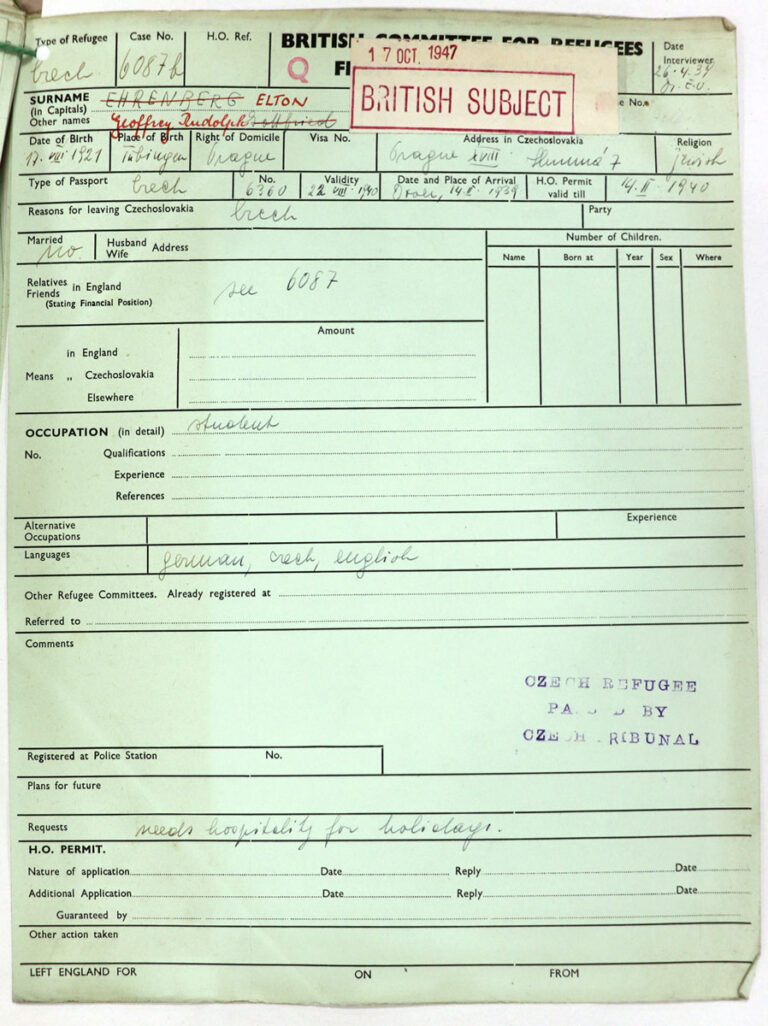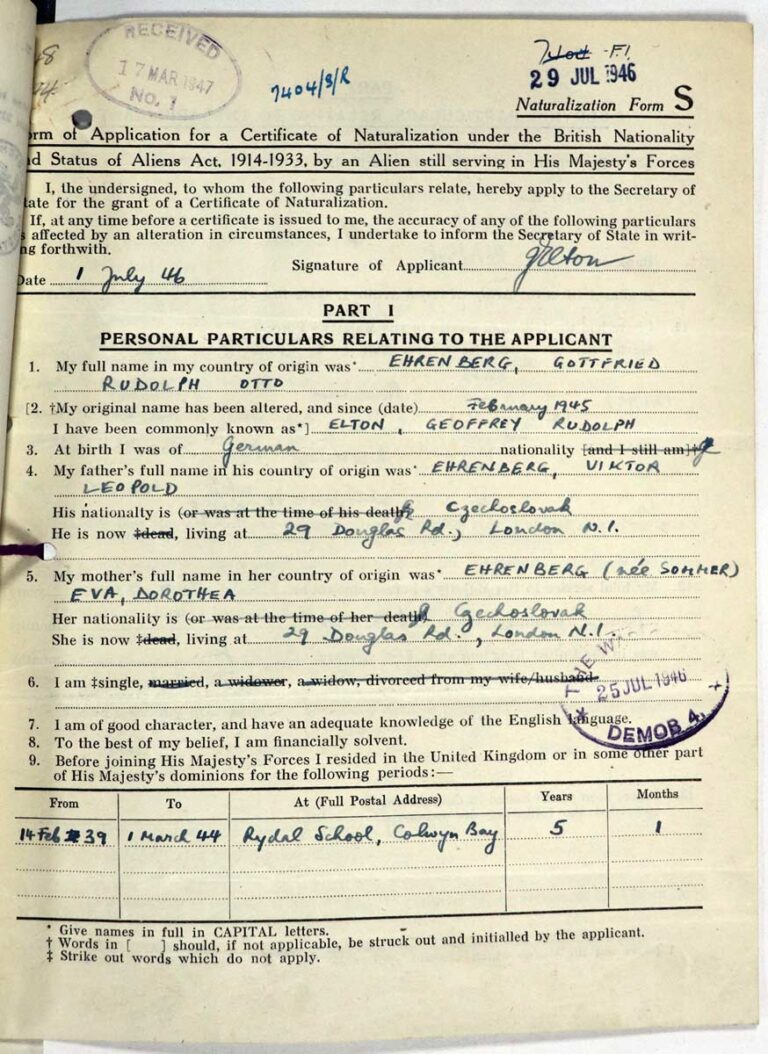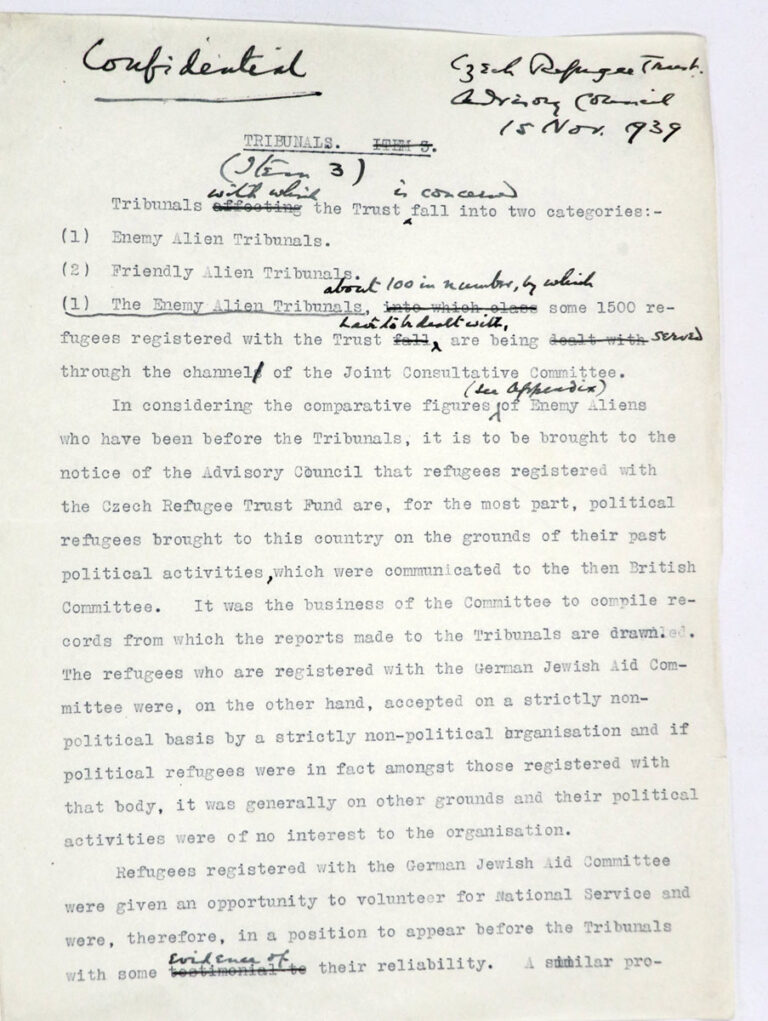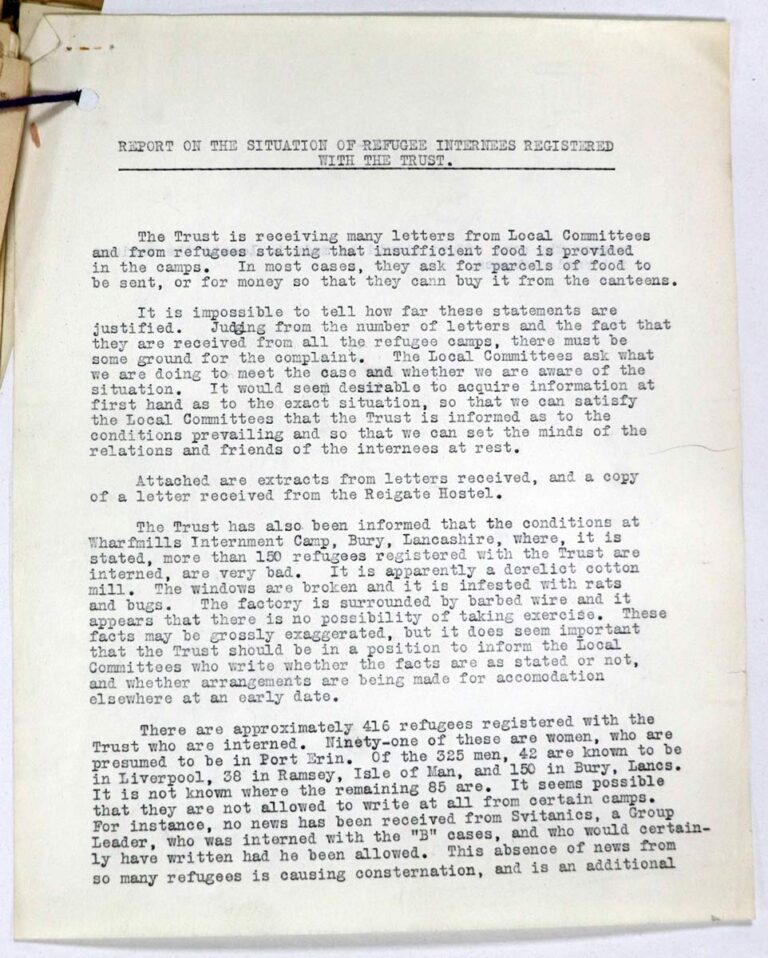On the eve of the Second World War, in response to the Nazi annexation of Czechoslovakia, the British Government established the Czechoslovak Refugee Trust. To mark International Migrants Day, this blog features the records of the Trust in the series HO 294, which thanks to a recent cataloguing project is now searchable by name and date.
Founding the Trust
The Trust was created on 21 July 1939 by Deed executed by the Commissioners of HM Treasury, the Home Secretary and three Trustees appointed by the Home Secretary. Its original purpose was the assistance of certain categories of people who sought refuge from Nazi persecution following the ceding to Germany of parts of the territory of Czechoslovakia under the Munich Agreement of 30 September 1938, and the dismemberment of Czechoslovakia by the Germans in March 1939. These refugees comprised not only Czechoslovak citizens but several hundred Germans and Austrians who had gained asylum in Czechoslovakia after escaping from Nazi persecution in their own country between 1933 and 1938.
The assistance to be afforded to refugees took two forms:
- emigration to some overseas country of settlement, and
- maintenance and training in Britain pending re-emigration.
Permanent resettlement of refugees was possible on only a very restricted scale during the war, but by about the end of 1947 the resettlement of refugees from Nazism had been substantially achieved.
In February 1948 a new category of refugees was created following the coup d’etat by which a Communist regime was established in Czechoslovakia, and the British Government enlarged the categories of Trust beneficiaries to include refugees from that regime.
Exploring the files
Detailed personal files of over 250 refugee families are in HO 294/235-486. Case papers of other refugee families, extracted from files that have not been preserved, are in HO 294/487-611: in many instances these provide a detailed case history for over 15,500 individual refugees. Until recently, these history cards could only be identified by consulting a numerical index of case papers in HO 294/612 and HO 294/613. Thanks to Jill and Sheila, two dedicated volunteers here at Kew, all of these cards can now searched by name and year of birth on our Catalogue, Discovery.
One of the newly catalogued cards relates to Gottfried Ehrenberg who anglicised his name to Geoffrey Rudolph Elton. Elton later became a distinguished historian and was the uncle of author and comedian, Ben Elton. His card, HO 294/557/6087B, shows that he was born in Tubingen, Germany on 17 August 1921. Cards also exist for his parents too, Victor (HO 294/557/6087), Eva (HO 294/557/6087A), and younger brother, Ludwig (HO 294/557/6087C).
The Jewish family moved to Prague when Geoffrey was a child, and became Czechoslovakian citizens in 1930, when support for the Nazi Party in Germany was growing as unemployment rose to over two million. Like thousands of other Jews, the family fled Prague following the annexation of Czechoslovakia and arrived in the UK in 1939. All four became British subjects after the Second World War and remained in the UK for the rest of their lives.

Not all of the refugees settled in the UK after the war. Some were repatriated to Czechoslovakia and others left the UK to other destinations, such as the newly created Israel.
Geoffrey’s naturalisation file, HO 405/12269, reveals that he arrived as a student at Rydal School, Colwyn Bay, Denbighshire. After leaving school, he enlisted in the British Army and became a sergeant at 31 Field Security Section, in the Intelligence Corps, serving in Italy.

The series of records HO 294 doesn’t just consist of personal files and case papers. Other files relate to policy and administration and related financial claims files may be found in T 210.
Several documents focus on the experience of hundreds of refugees from Austria and Germany who came to the UK via Czechoslovakia with support from the Trust. As German and Austrian nationals, these individuals were immediately classed as ‘enemy aliens’ when war was declared on Germany on 3 September 1939, and many of them would be interned in camps on the Isle of Man in the Spring of 1940 following the fall of France. Some would even be deported to Canada and Australia. The Trust would campaign for the release of Austrians and Germans who had been the victim of Nazi persecution.


By the end of hostilities, over 10,000 refugees remained registered with the Trust. Over 2,000 were repatriated with the support of the Trust but the majority remained in the UK, and many, like Geoffrey Elton, become naturalised British subjects.
Find out more
Find out more about Second World War internment records at our upcoming free exhibition Great Escapes: Remarkable Second World War Captives. Opening Friday 2 February 2024, Great Escapes explores the human spirit of hope and resilience during times of captivity, revealing both iconic and under-told stories of prisoners of war and civilian internees during the Second World War.
We’ve also scheduled a season of special events to accompany the exhibition that are available to book now.
Not all of the records are open, strangely some are open who people who were born in the 1930s.
Hi, thanks for your comment. None of the records’ closure status was changed as part of this enhanced cataloguing project. To request a piece or item to be opened, please submit an FOI Request as indicated in our Catalogue, Discovery.